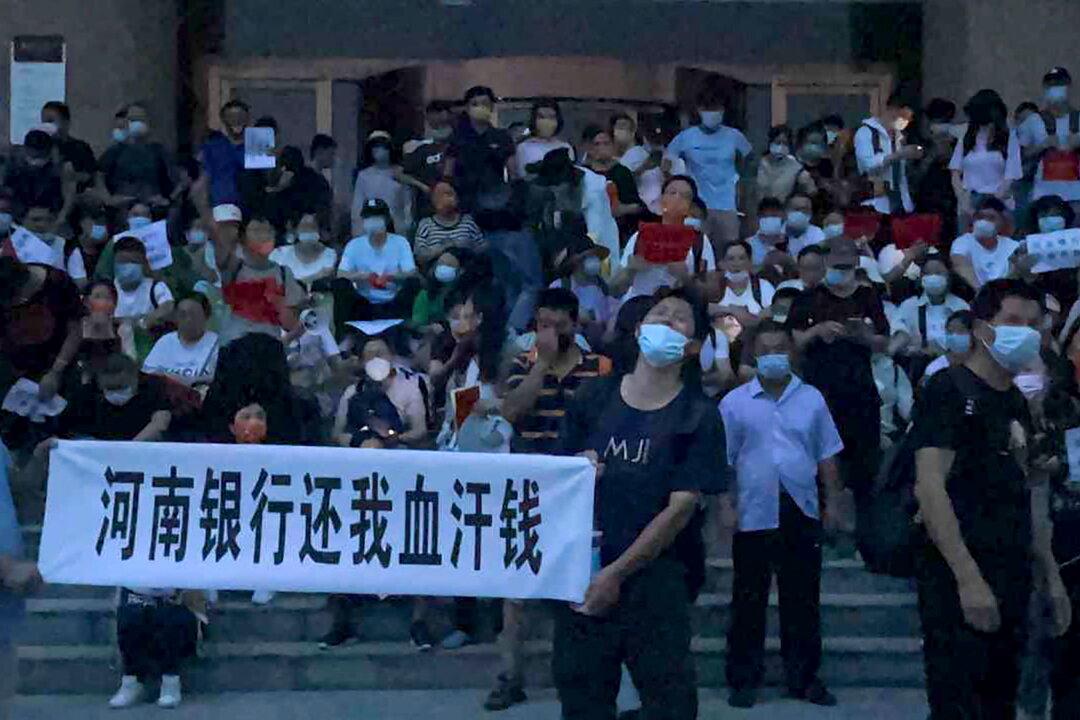Victims of a Chinese bank scam braved frigid temperatures on New Year’s Day to demand justice—and their savings—after authorities froze their savings accounts months ago. The protest capped months of frustration for rural account holders who were snared by the scam. In response, protesters encountered brutal treatment and arrest at the hands of Chinese police, and many were reported missing after the demonstration.
Many of the protesters have been unable to access their savings for over nine months. In April of 2022, authorities froze the accounts, with deposits worth millions, at rural banks in central China’s Henan Province.




